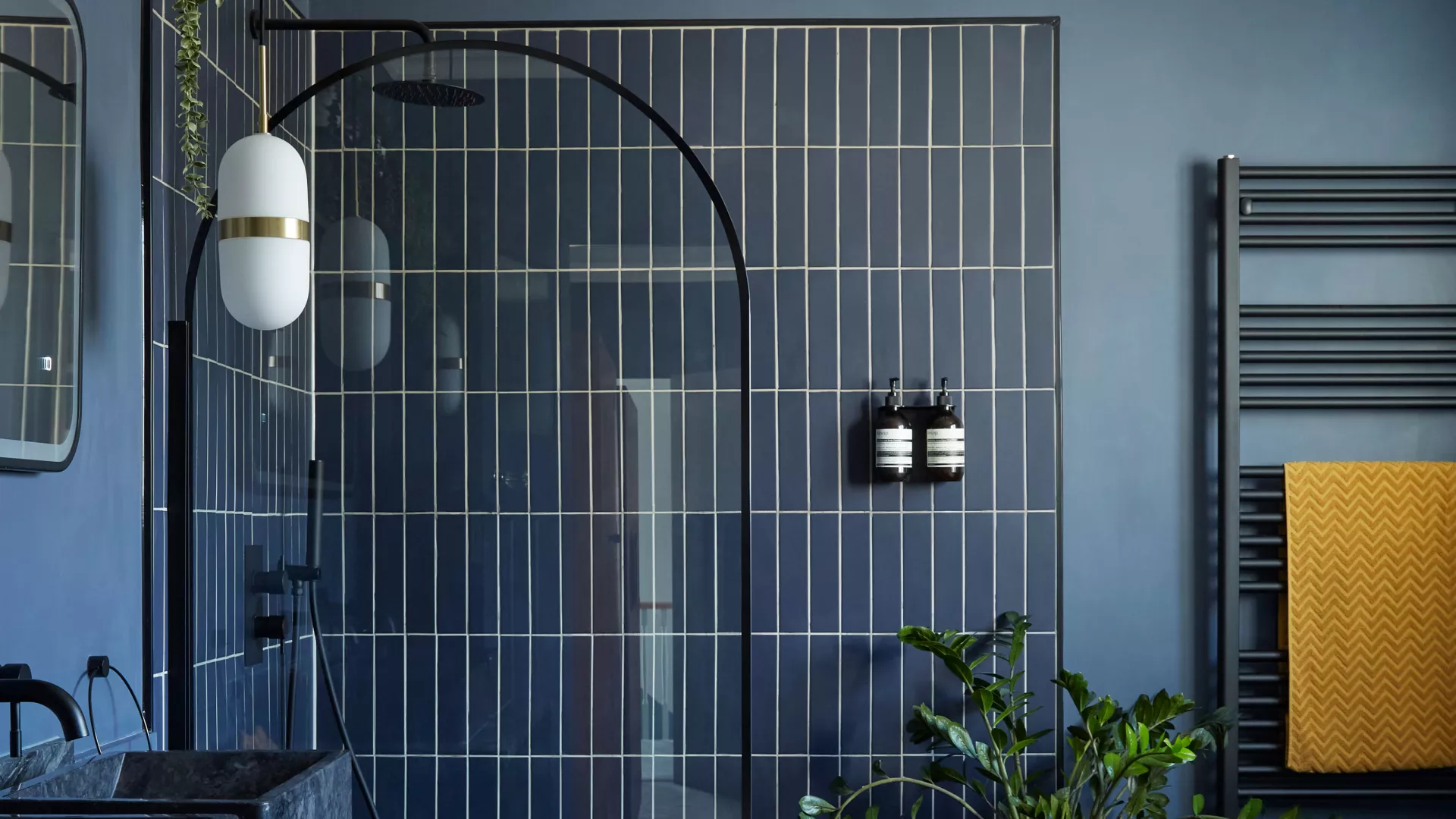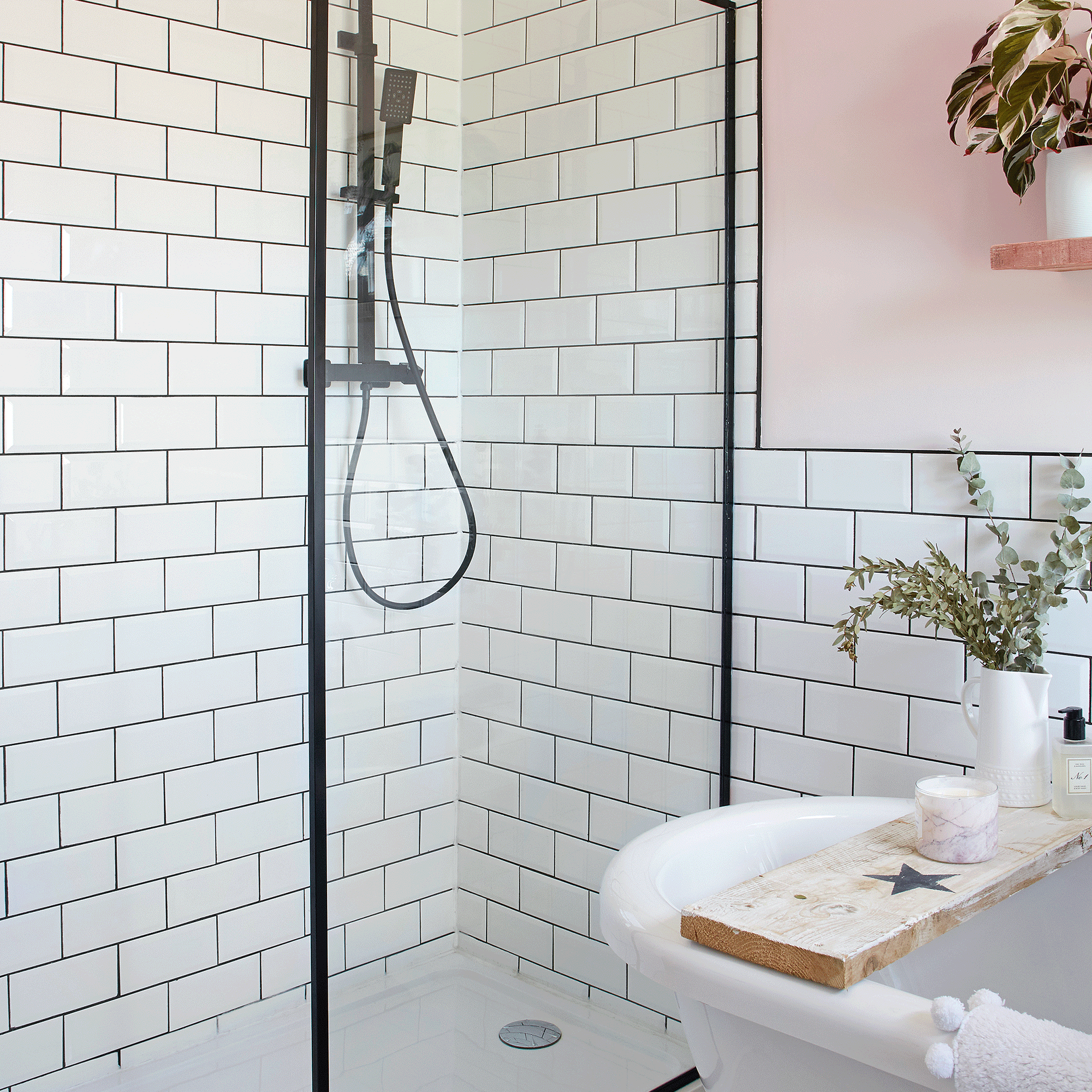How much does it cost to run a shower? And how can you save on running costs?
We’ve calculated how much it costs to run a shower following the October energy price cap increase.

Amidst the cost of living crisis, we’ve seen people pull back from indulging too heavily in the use of their home appliances. Many have chosen to stop using their tumble dryer and more and more have opted to swap out the use of their oven for an air fryer. Given this, there’s one area of our homes we’re constantly in, the bathroom, and we’re sure the question has sprung to many a mind, ‘How much does it cost to run a shower?’
While the likes of minimising home appliance usage are effective ways to save energy at home, we don’t want you to think that skipping a shower is a must in the hopes to run down your bills.
We’ve broken it down and calculated just how much it costs to run a shower following the October energy price cap increase, as well as how you can save on running costs – so you know what to expect on your next utility bill invoice.

How much does it cost to run a shower?
‘While there are a couple of key factors which impact the cost of a shower, one of the main ones is whether you have an electric shower or a traditional one which relies on a gas boiler to heat the water,’ explains Nigel Best, director at Electrician Courses 4U
How much does it cost to run an electric shower?
While the amount of energy a shower will use varies on the individual appliance, an electric shower can use an average of 8.5kW of energy.
With this in mind to work out the cost of using an electric shower you need to multiply how much energy it is using, so 8.5, by the cost of electricity, 0.34. Once you’ve done this divide it by 60 and then multiply the total by the length of time you spend in the shower.
So, if we assume that the average person takes a 10-minute shower, you can expect to spend 48p per shower on electricity.
This is based on the calculation:
Power (8.5kW) x cost per kWh (0.34) / 60 = 0.048, the cost per minute.
Then, multiply the cost per minute (0.048) by the number of minutes each activity is (10) = 0.48, the total per single use.
However, Nigel Best reminds us that on top of that, you’d also need to account for the cost of water. A 10-minute shower uses approximately 150 litres of water. Discovery Water(opens in new tab) estimates that two litres of water from the tap costs around a third of a penny, therefore, we can calculate the cost of water at 25p per shower.
So, when you add the cost of electricity per shower and the cost of water it brings us to 73p per shower for an electric shower.
How much does it cost to run a gas shower?
‘With the current cost of gas being capped at 10.3p per kilowatt-hour as opposed to 34p per kilowatt-hour for electricity it costs a lot less for water to be heated for a traditional shower,’ explains Nigel Best at Electrician Courses 4U.
Calculating the cost of a gas shower is pretty much the same as doing so for an electric shower. Multiply how much energy it is using, 8.5, by the cost of gas, 0.103. Then, divide that by 60 to find the cost to run per minute and then multiply that figure by the amount of time it’s being used.
Again, if we assume that a person takes a 10-minute shower, then this brings us to around 15p per shower. But of course, with the added cost of water, this totals around 40p per shower for gas showers.
Are electric showers expensive to run?
Following our calculations based on a 10-minute shower, you can expect to spend 73p per electric shower and 40p per gas shower. Overall, it’s cheaper to run a gas shower.
However, fear not, as there are plenty of ways to cut costs on your energy bills irrespective of what kind of shower you use.
How to reduce the cost of running a shower
1. Switch your shower to a gas model
If you’re planning to revamp your bathroom and try out some new shower ideas, it could be worth considering your shower model. ‘To save money, see if you can switch your shower to a model that heats your water with gas, which is currently 2.75 times cheaper than an electric model,’ suggests Ben Dhesi, creator of HUGO
2. Be strict on the time you spend in the shower
Emily Brady, marketing and content manager at Yorkshire Water suggests making small changes so you can save up to £700 per year. ‘Instead of having an eight-minute shower, cut this in half to four minutes. By having 4-minute showers instead, you could save £128.18 on showers per year,’ she explains.
And mind you, this is based on 8-minute showers. So if you went from your typical 10-minute shower to a 4-minute one instead, think about the savings. Try it and monitor it on a smart meter to see for yourself.
We know it feels like a difficult task, especially if you’re one to get distracted. ‘One way to counteract this is to set a timer on your phone for four minutes or to play a four-minute long song so you know once it’s over it’s time to get out,’ suggests Nigel Best at Electrician Courses 4U.
‘Alternatively, try having a navy shower. This is a wash which lasts three minutes or under and comes from crew members having to conserve water and energy on naval ships,’ he continues.
‘You first get wet, then turn off the water when using soap and shampoo to clean yourself. Then once you’ve scrubbed and are clean you turn the water back on to rinse off the soap.
3. Upgrade your shower head
‘You may enjoy a power shower but you probably won’t when you realise how much more water they use,’ warns Nigel Best at Electrician Courses 4U. ‘Energy efficient shower heads can save up to 50% more water compared to regular shower heads and are a relatively inexpensive purchase.’
Ben Dhesi, creator of HUGO(opens in new tab) explains that these shower heads ‘restrict your water flow while increasing your water pressure, meaning you have a more efficient shower that needs a fraction of the water.’
‘On average, these can take your water usage down from around 150L for a 10-minute shower to as low as 40L, lowering your bill to between 16p and 52p.’
4. Make use of the facilities you have access to
‘If you have a gym membership or access to showers elsewhere, it’s well worth taking advantage of this. Set off with a spare set of clothes in your bag and make the most of the facilities you have access to,’ says Nigel Best at Electrician Courses 4U.
This isn’t to say that you should buy a whole new gym membership just to take a shower, but if going to the gym is already part of your daily routine, it could be worth considering to get an extra bang for your buck.
Overall, yes, taking a shower can be costly but it’s a cost we’re all pretty much willing to pay so as to not sacrifice our hygiene and comfort. However, we can help run these costs down by being a little more mindful.